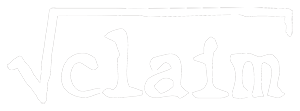Math is great for dealing with certainties…
In mathematics there is a unifying language that links past discoveries and current theories. We can take a complete block of previous scholarship, plug it into a block of new scholarship, and they will fit perfectly and exactly with one another.
The beauty of mathematics as a system of knowledge is that it allows us to deal with complex problems by building on past knowledge. Once someone formalizes their findings in a proven mathematical model, the whole scientific community can seamlessly integrate it into their research and reach a better understanding of the world we live in.
For example, once Pythagoras proved that a2 + b2 = c2, other mathematicians could use that formula whenever they encountered a right triangle, without having to prove it again each time.
But what about when things become uncertain?
In disciplines other than exact sciences, though, we enter a world in which things are only probably correct, or probably incorrect—in other words, our knowledge in these fields is uncertain.
How can we bind together concepts from uncertain fields like history, archaeology, and psychology, to name a few? Our knowledge in these areas is much more nebulous than in mathematics, and difficult to stitch together in the same seamless way. Without a unified system to organize, analyze, and evaluate uncertain information, it is impossible to build on previous scholarship in an orderly, logical fashion.
We need a system of knowledge that lets us combine information of all different types—both certain and uncertain—the same way that mathematics allows us to combine past formulas with new knowledge.
If I have seen further it is by standing on the shoulders of Giants.
–Sir Isaac Newton
Rootclaim’s probability-based analysis system lets us “see further”, in the words of Isaac Newton, by allowing different types of information to speak to each other in the same language. Using Rootclaim, we can finally build on all kinds of previous knowledge in an objective, seamless way—even when that knowledge is uncertain.

Leave a Reply